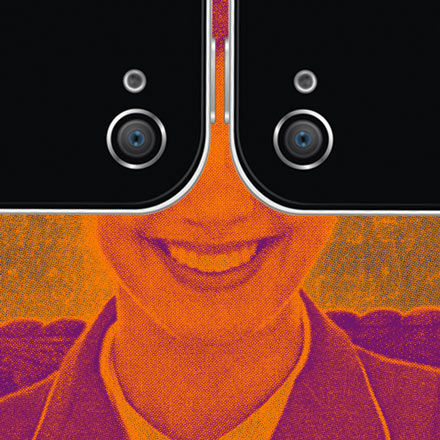
Recently the Barbican museum in London held an exhibition called the Rain Room. It was an installation in which water poured from the ceiling, but sensors detected where people were standing and would turn off the taps above their heads so they didn’t get wet. It was a clever and engaging piece of interactive art and was immensely popular. During the time this installation was open, my Twitter stream was filled with photos of people standing in the Rain Room, accompanied by the caption ‘Rain Room @ The Barbican!’ and a location attachment to prove that they were indeed in the Rain Room.
This stream of homogenous photos got me thinking. What were people actually saying by Tweeting about their visit? They certainly weren’t sharing some hidden gem with their followers, nor were they bringing a unique interpretation of the artwork to the table. Ultimately, all they were doing was fulfilling the obligation that we have to Share. Not sharing in the sense of treasuring a moment with people close to us, but Sharing in the sense of ’notify the world that I am doing a thing’.
I’ve just spent a month in Singapore. Throughout the first couple of weeks I felt a constant nagging that everyone back home had to know what was going on. I felt like I should be photographing everything I did as proof; that all the exotic food I was eating and the sights I was seeing wouldn’t really matter if they weren’t digitally logged in a data centre somewhere in Utah. I found myself taking pictures purely to convey what an amazing time I was having, so that my friends would see it on their smartphones whilst riding the bus back in London and be impressed.
It’s natural to want to share experiences with the people you care about. After all, the classic postcard greeting is ‘Wish you were here’. But I think our reasons for sharing experiences on social media are more cynical than that. It’s not sharing, it’s bragging. When we log in to Facebook or Twitter we see an infinitely updating stream of people enjoying themselves. It’s not real life, of course, because people overwhelmingly post about the good things whereas all the crappy, dull or deep stuff doesn’t get mentioned. But despite this obvious superficiality, it subconsciously makes us feel like everyone is having a better time than us. We try to compete by curating our own life experiences to make it look like we’re also having non-stop fun and doing important things. It breeds in us a Pavlovian response that means every time something good is happening to us we must broadcast it to as many people as possible.
There are plenty of ‘Facebook is bad for you because X’ posts, but I’m talking about a mindset that goes beyond any single web service. This is the curse of our age. We walk around with the tools to capture extensive data about our surroundings and transmit them in real-time to the bedrooms and pockets of friends, family and every acquaintance we’ve made in the past eight years. We end up with a diminished perception of reality because we’re more concerned about choosing a good Instagram filter for our meal than we are about how it tastes. We become Martian rovers, trundling around our environment, uploading data without the ability or desire to make any sense of it. Ultimately, we end up externalising our entire lives.
I don’t think that it’s inherently wrong to want to keep the world updated about what you’re doing. But when you go through life robotically posting about everything you do, you’re not a human being. You’re just a prism that takes bits of light and sound and channels them into The Cloud, to be stored with all the other bits of light and sound from everyone else. You become nothing more than the thumb operating your smartphone.
The key thing to remember is that you are not enriching your experiences by sharing them online; you’re detracting from them because all your efforts are focussed on making them look attractive to other people. Your experience of something, even if similar to the experience of many others, is unique and cannot be reproduced within the constraints of social media. So internalise that experience instead. Think about it. Go home and think about it some more. Write about it in more than 140 characters; on paper even. Paint a picture of it. Talk about it face to face with your friends. Talk about how it made you feel.
Once you stop seeing things through the eyes of the people following you on Twitter or Facebook or Instagram you become able to make experiences your own. You can relieve yourself of the burden of having to make everyone aware of what you’re doing at all times. You can make your experiences significant because you were there and you saw the sights and smelled the smells and heard the sounds, not because you snapped a photo of it through a half-inch camera lens built into your phone.
Discussion over at Hacker News